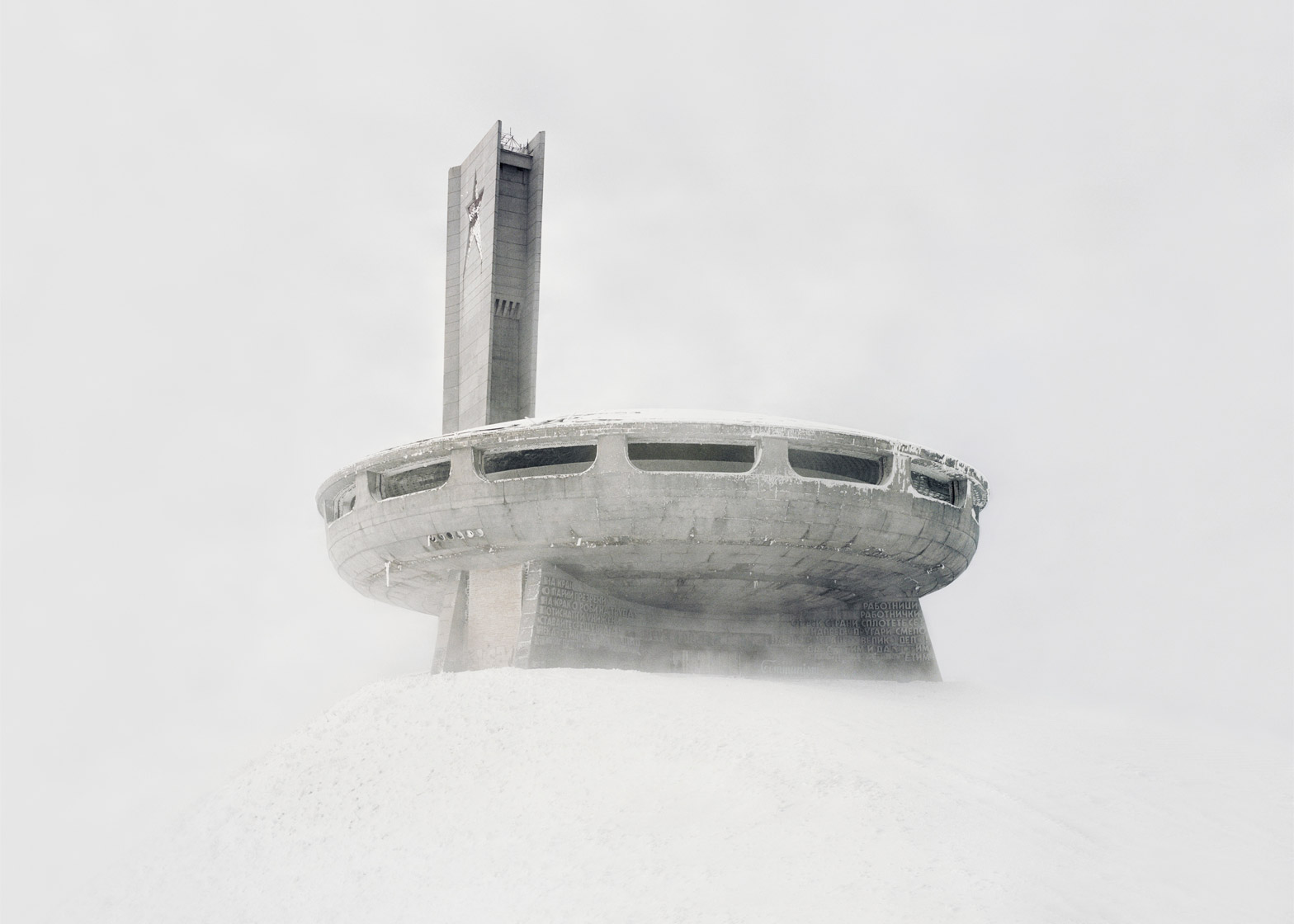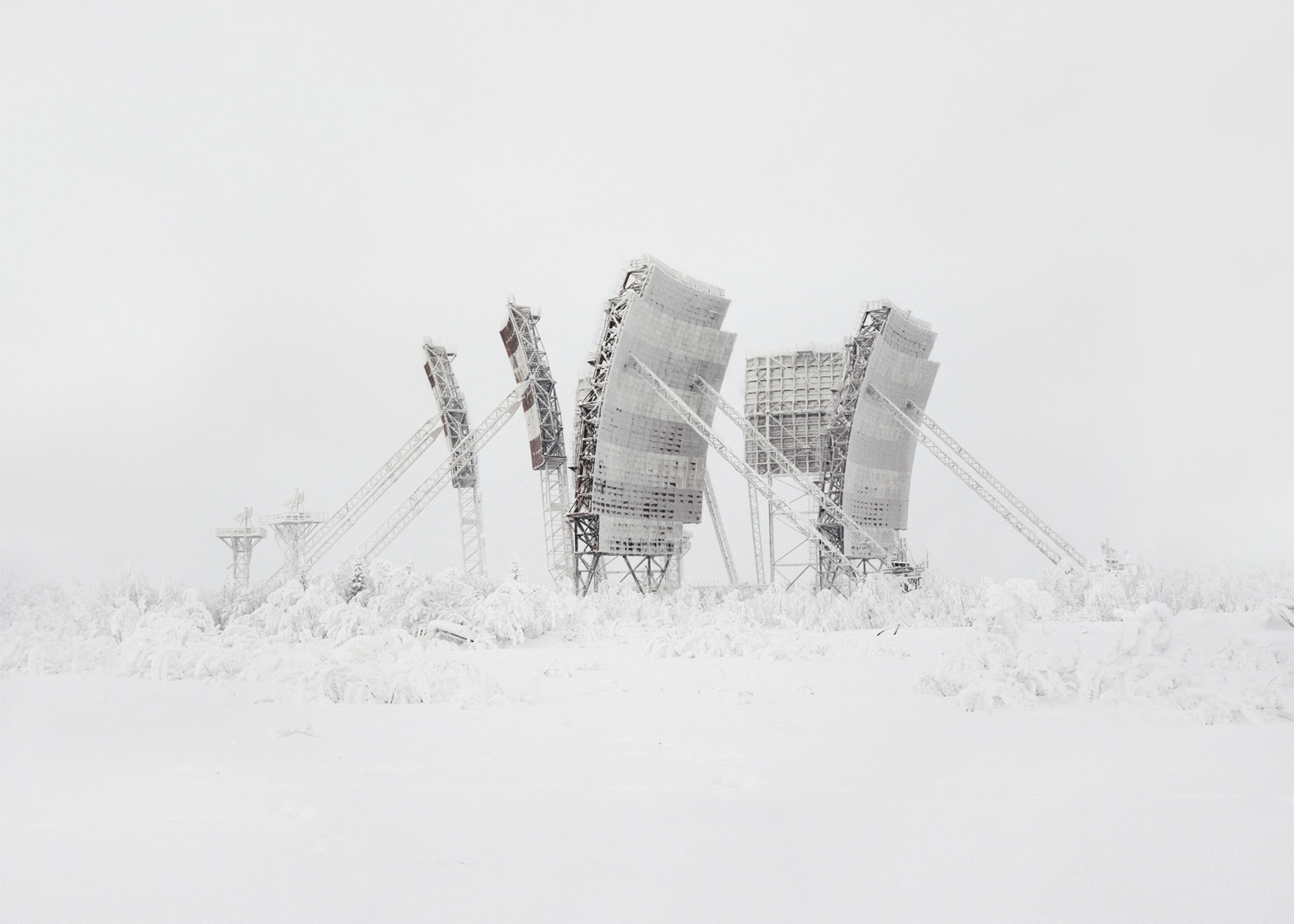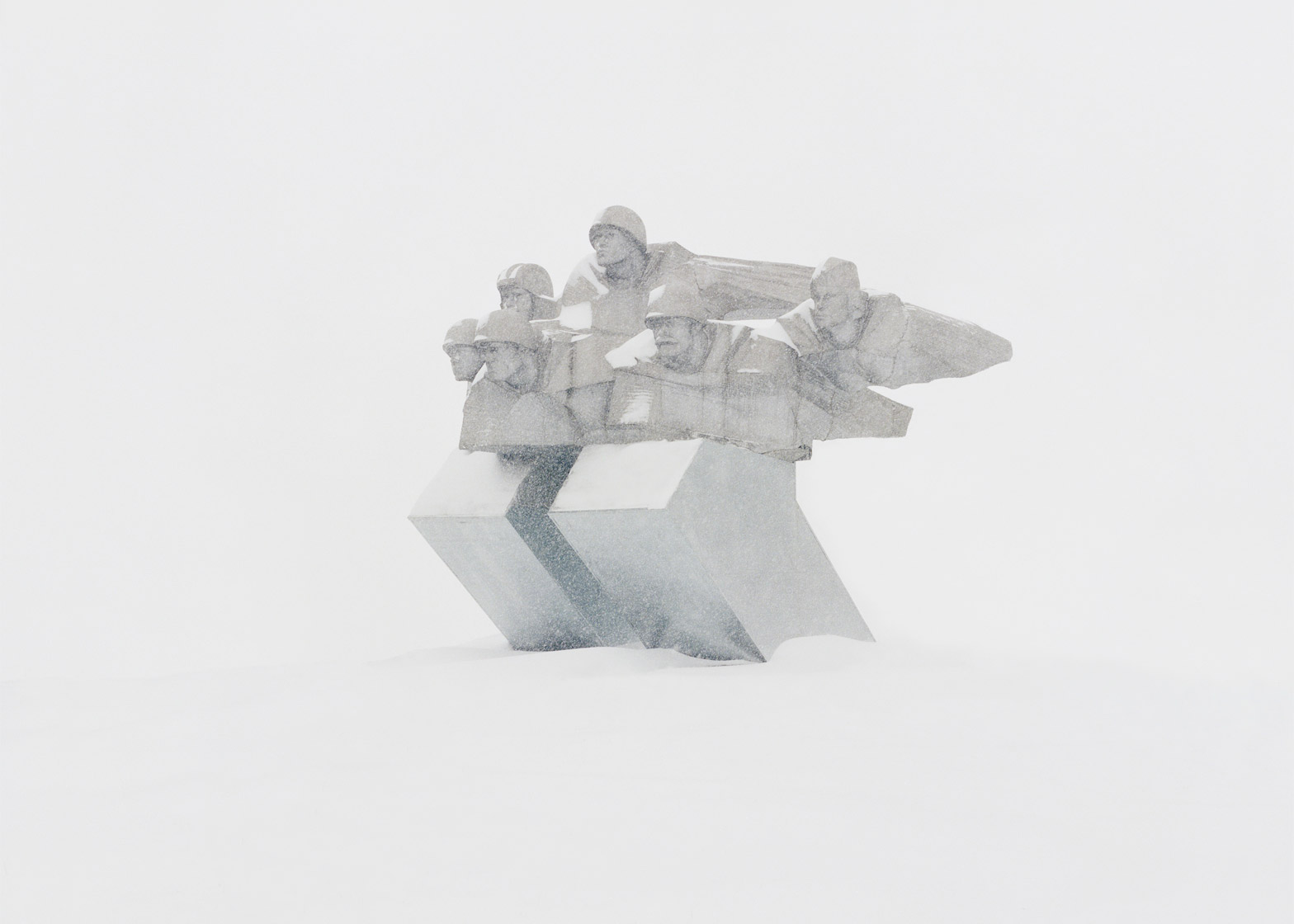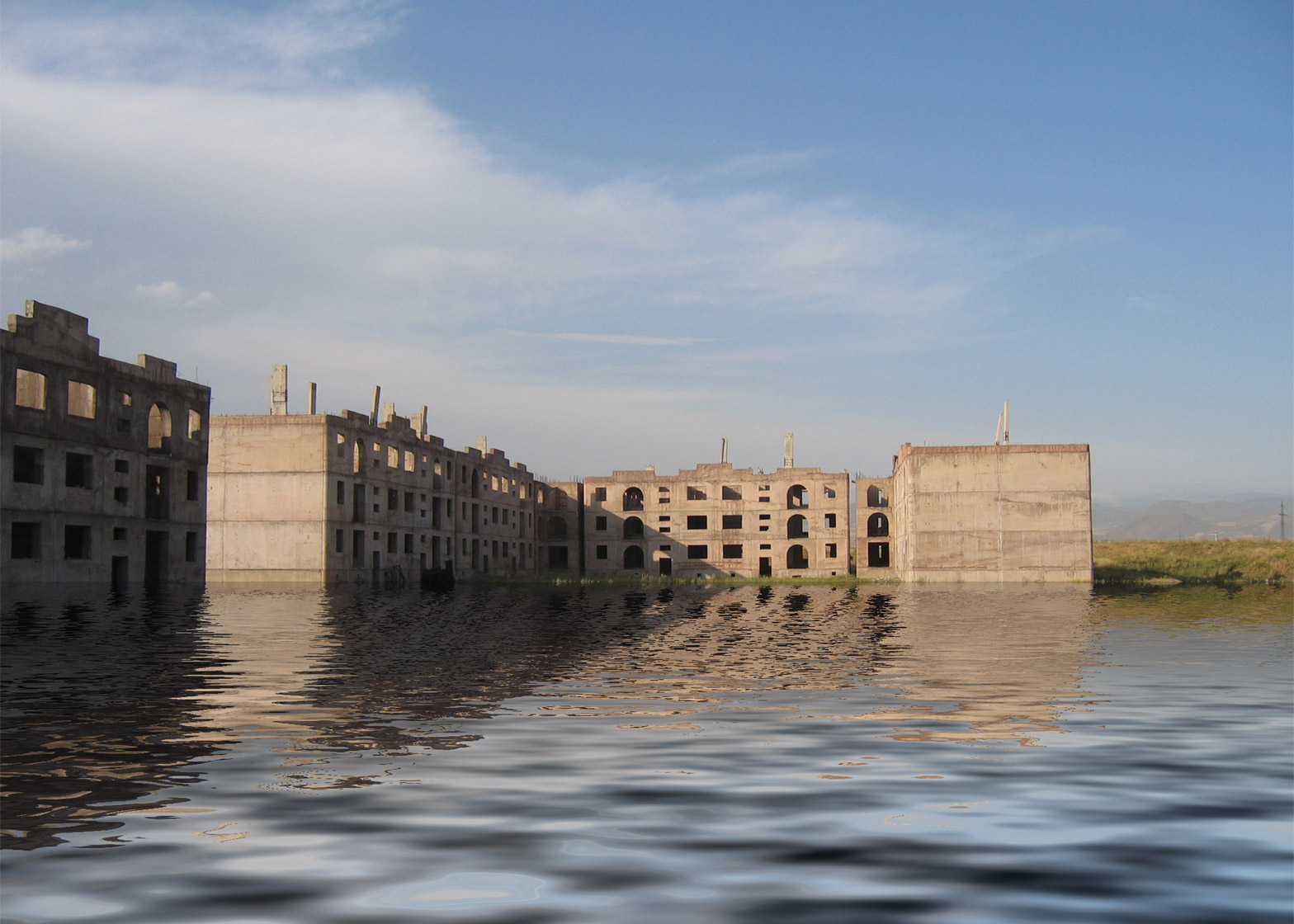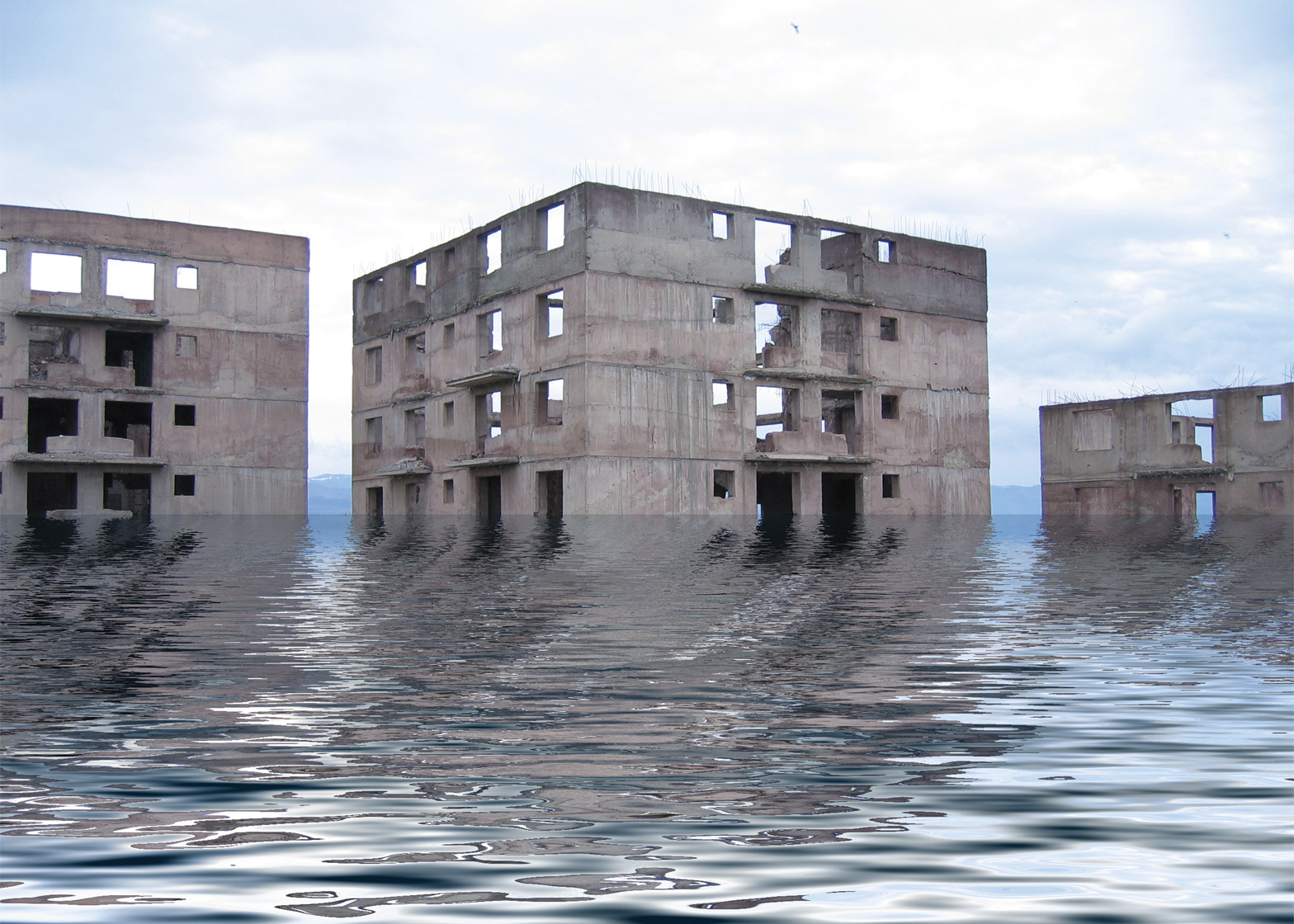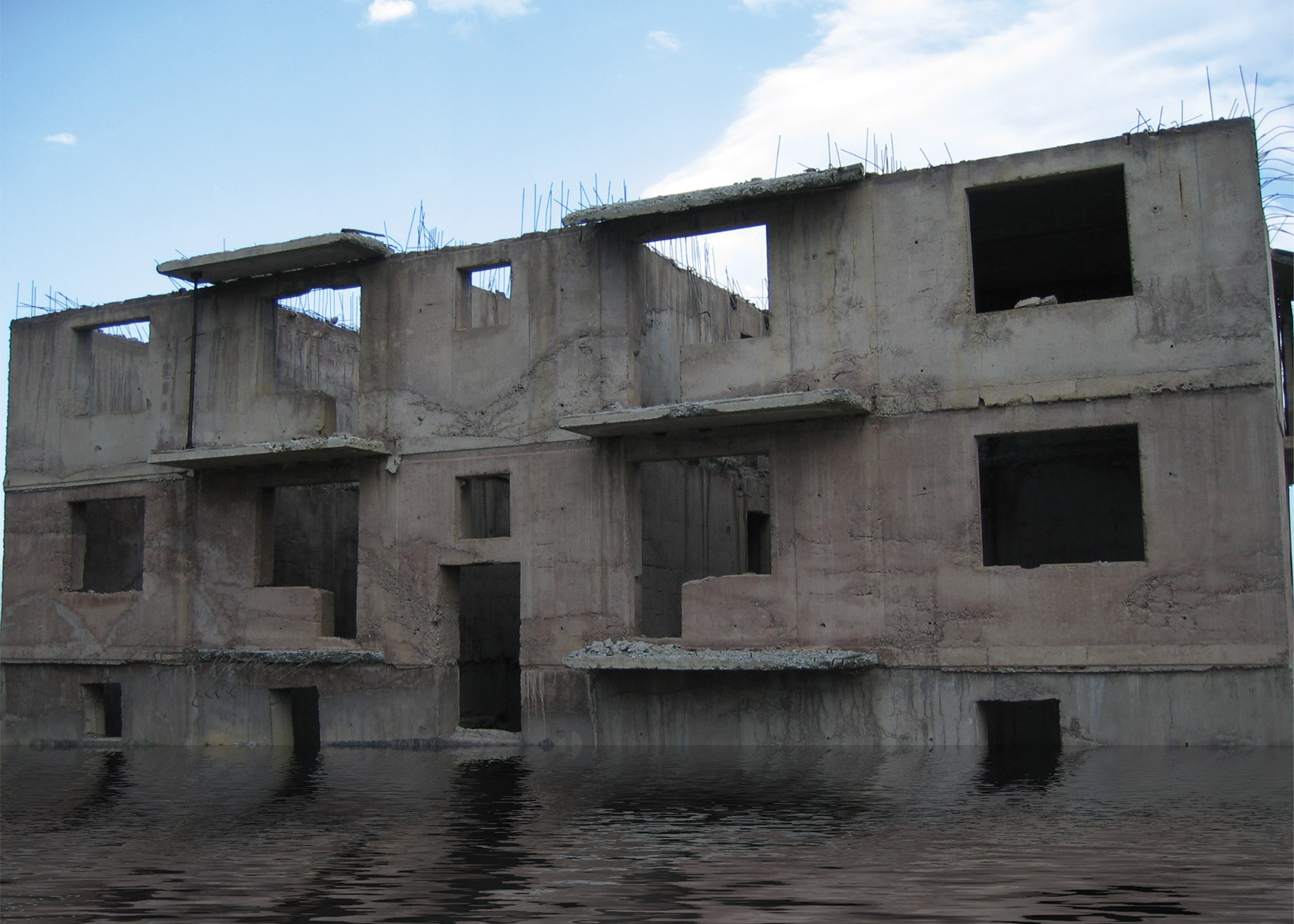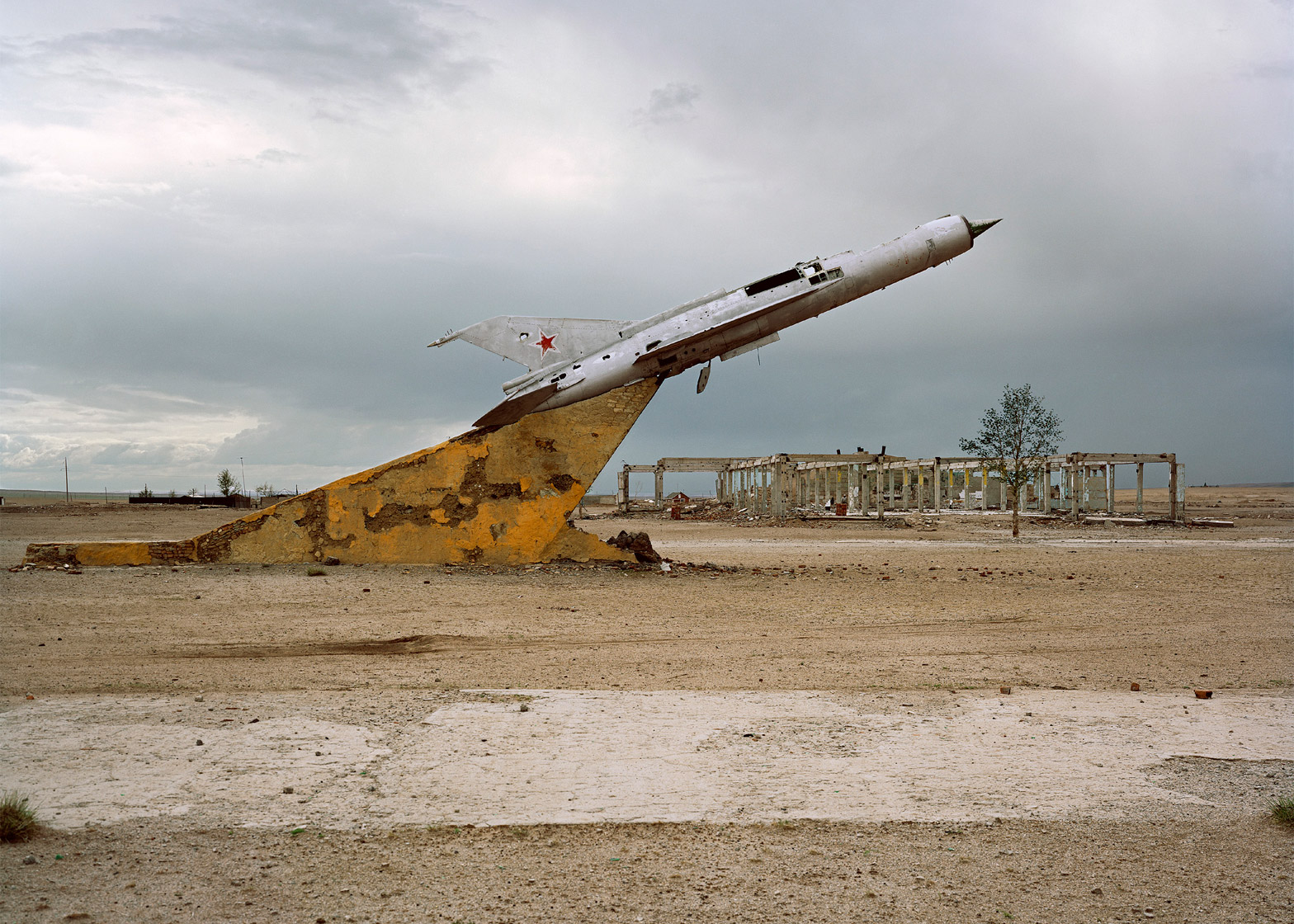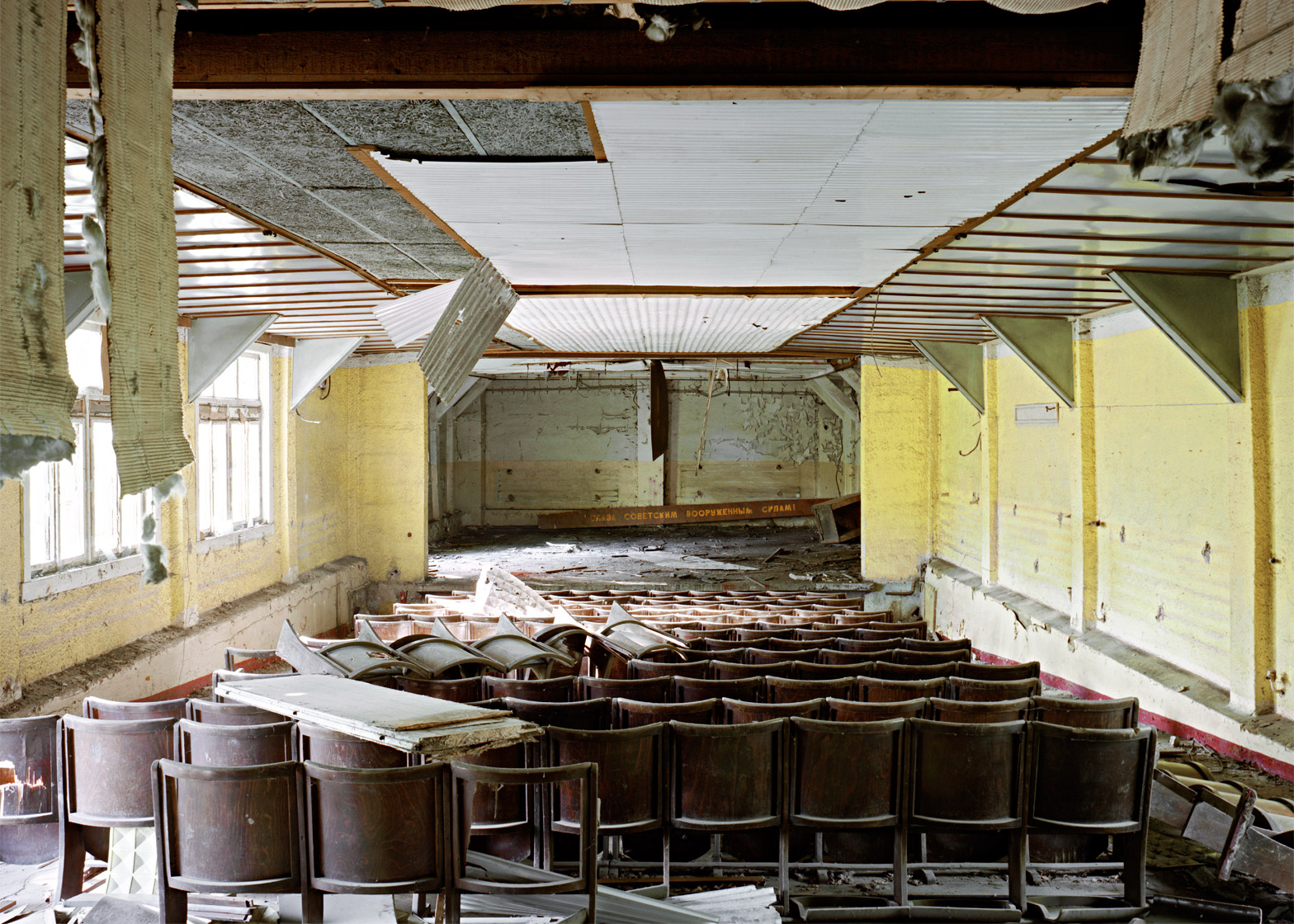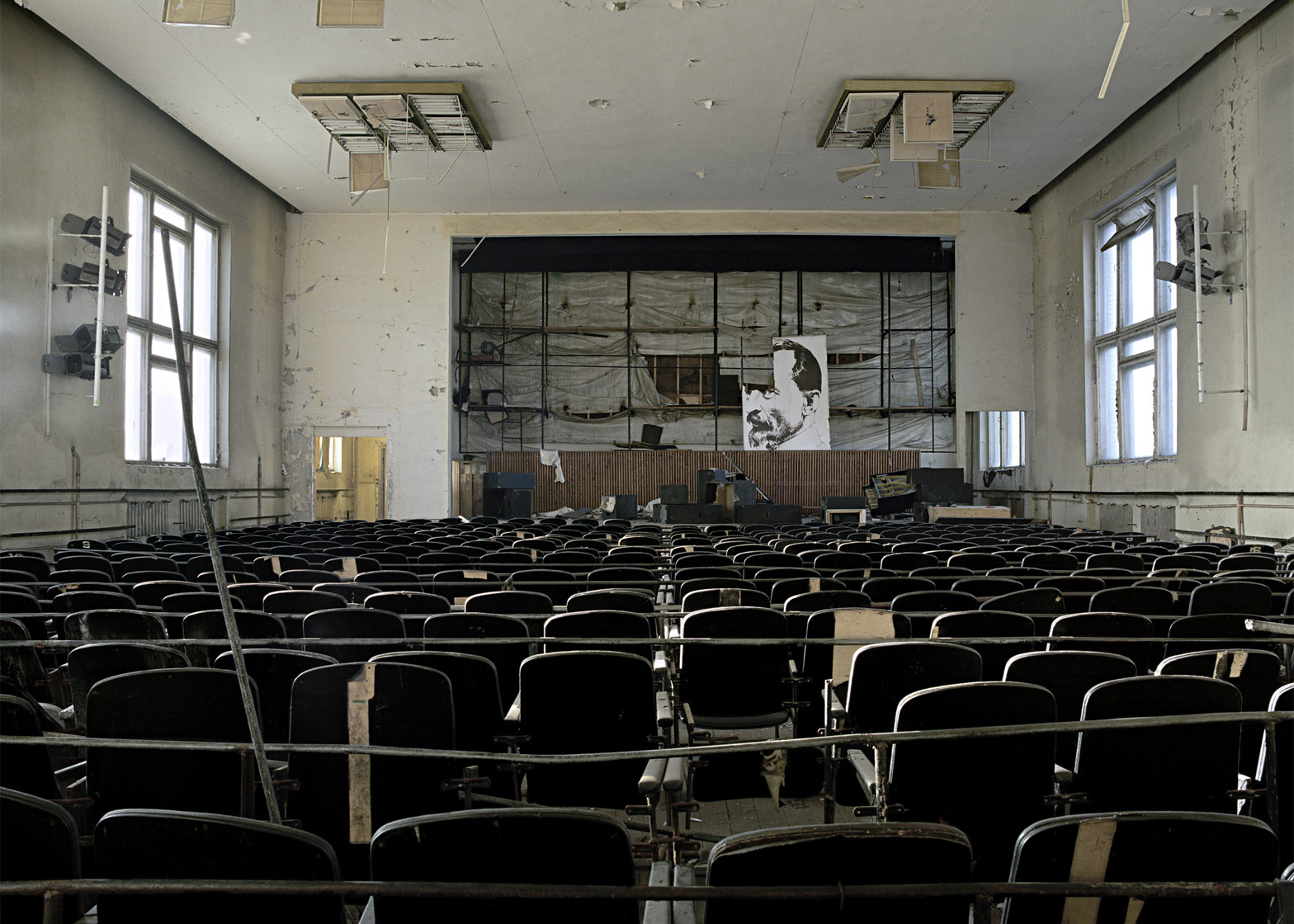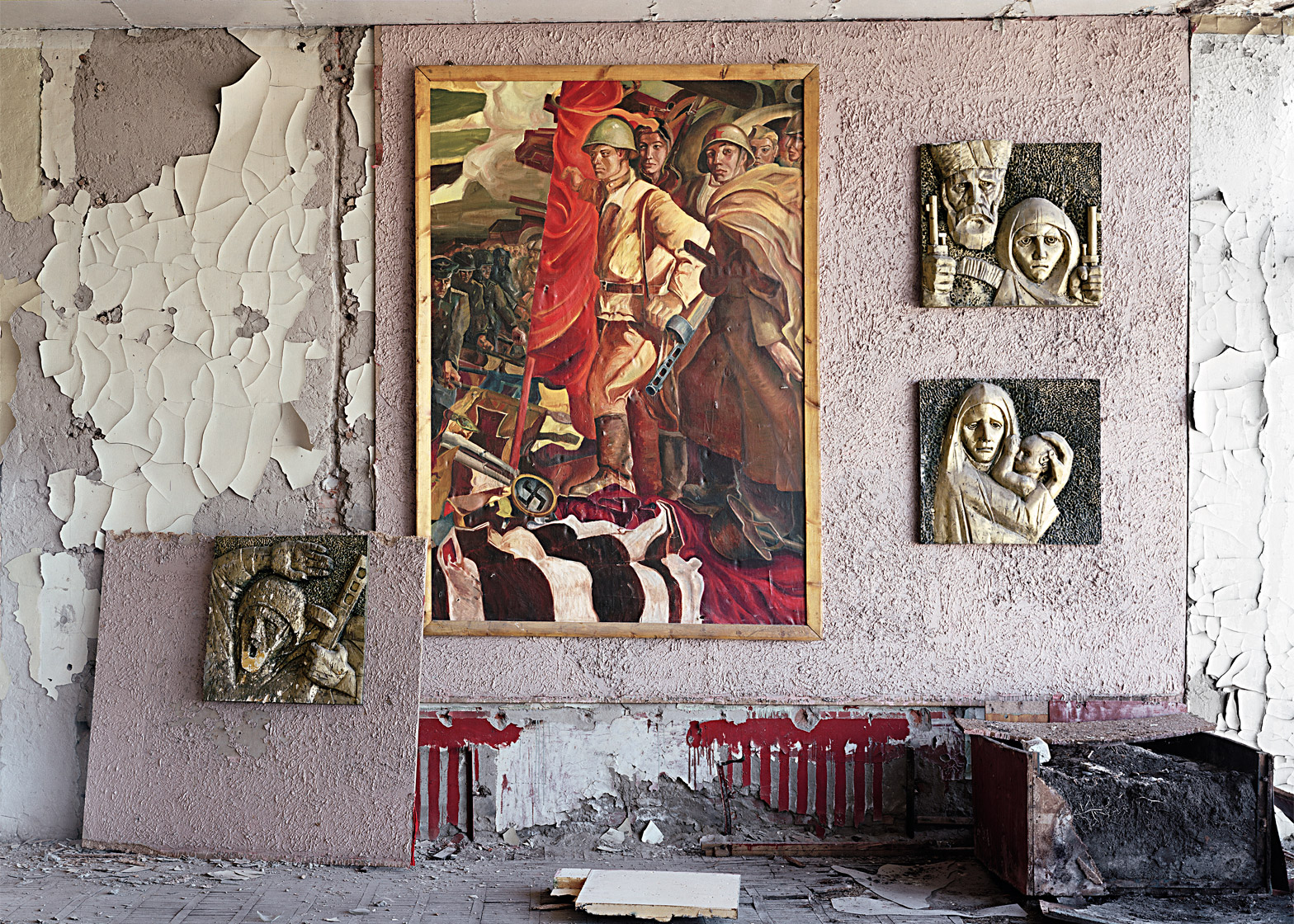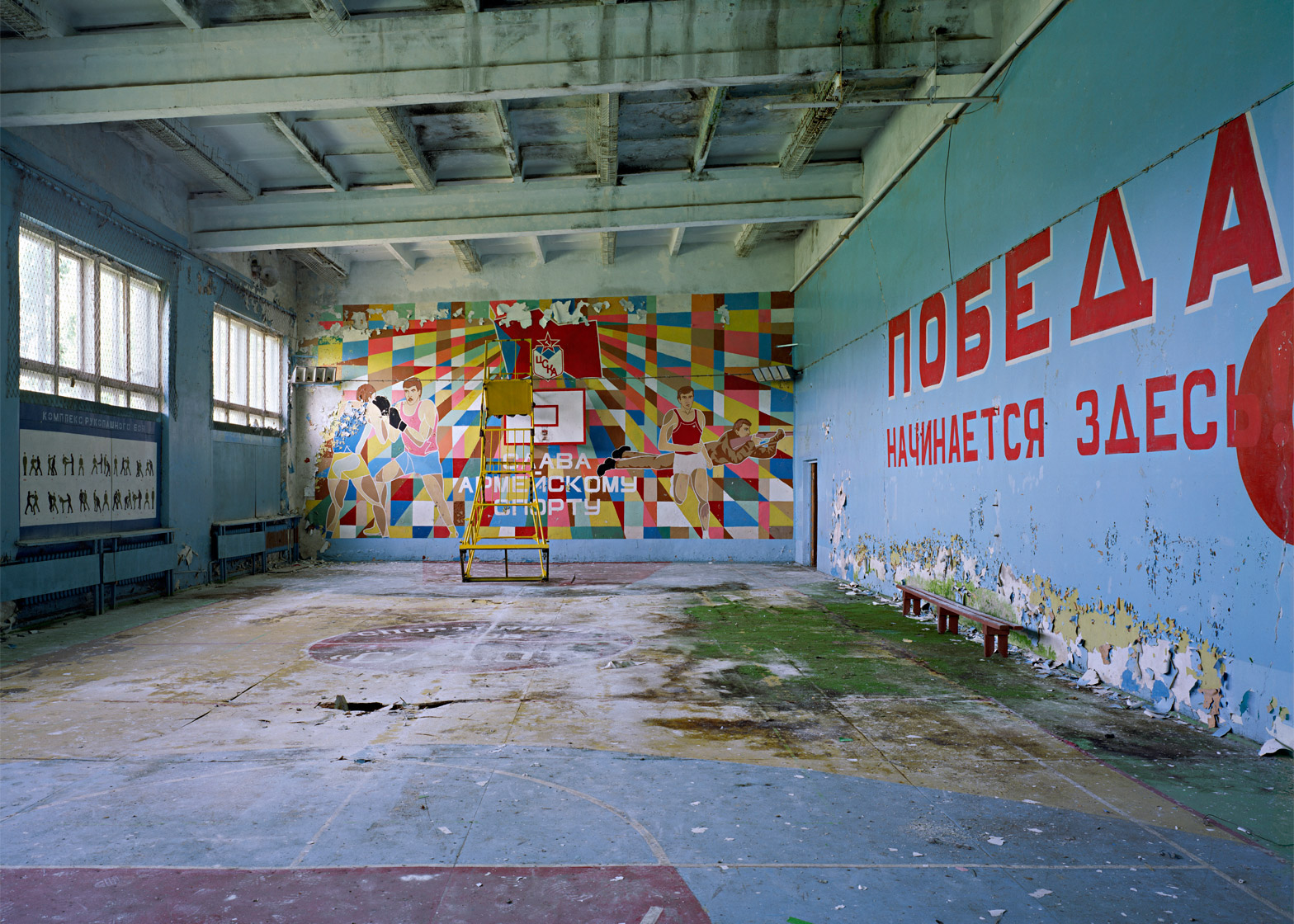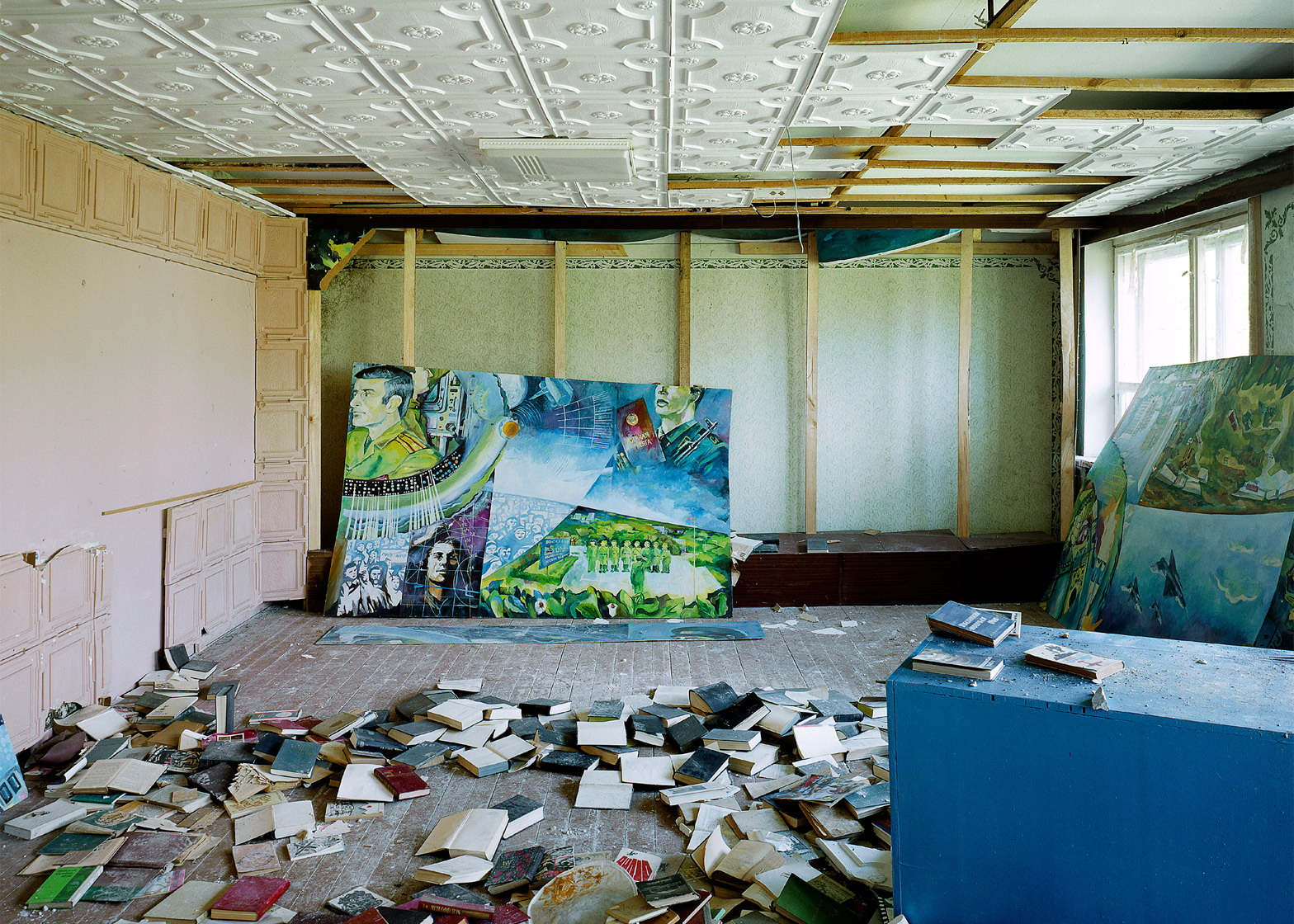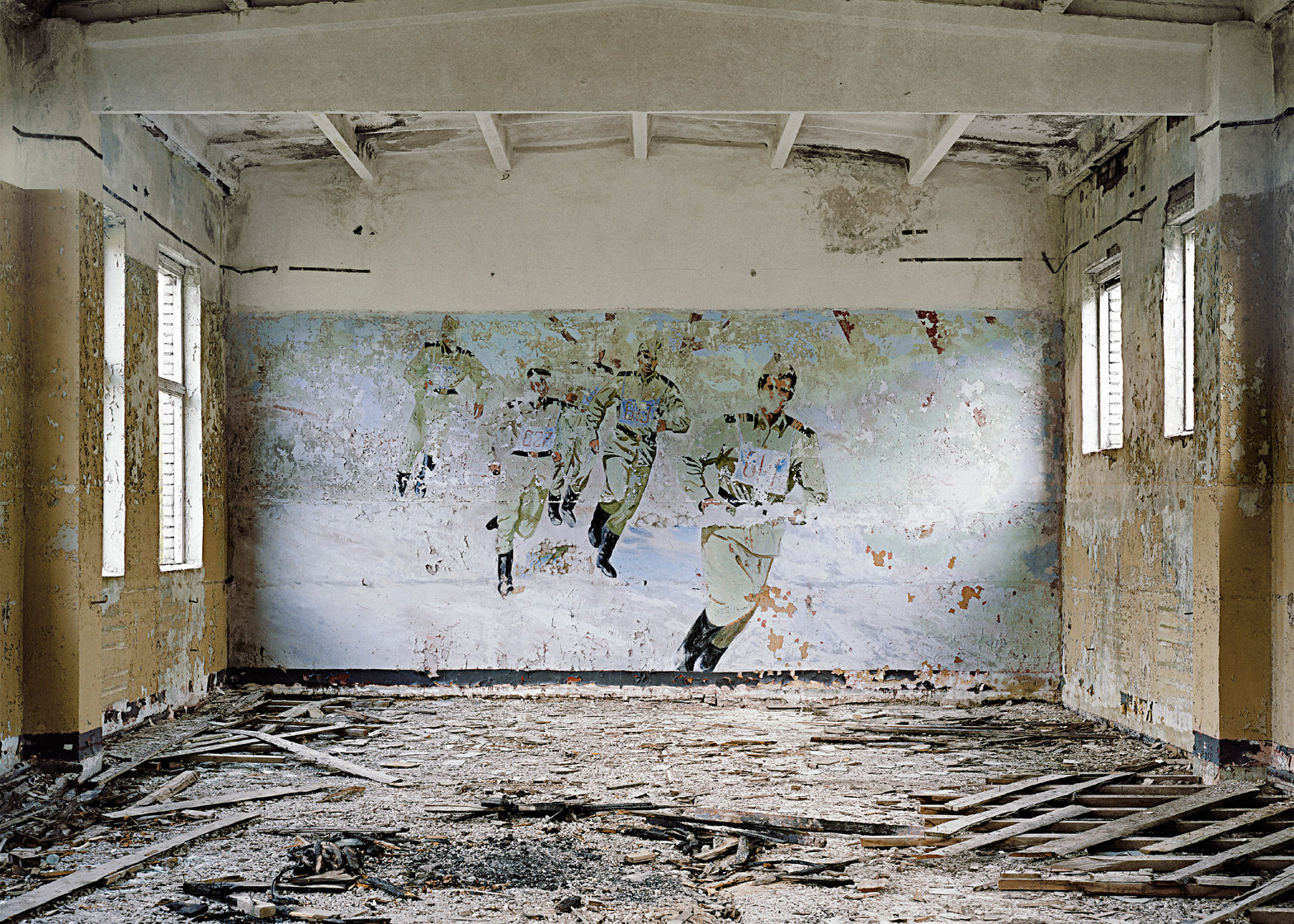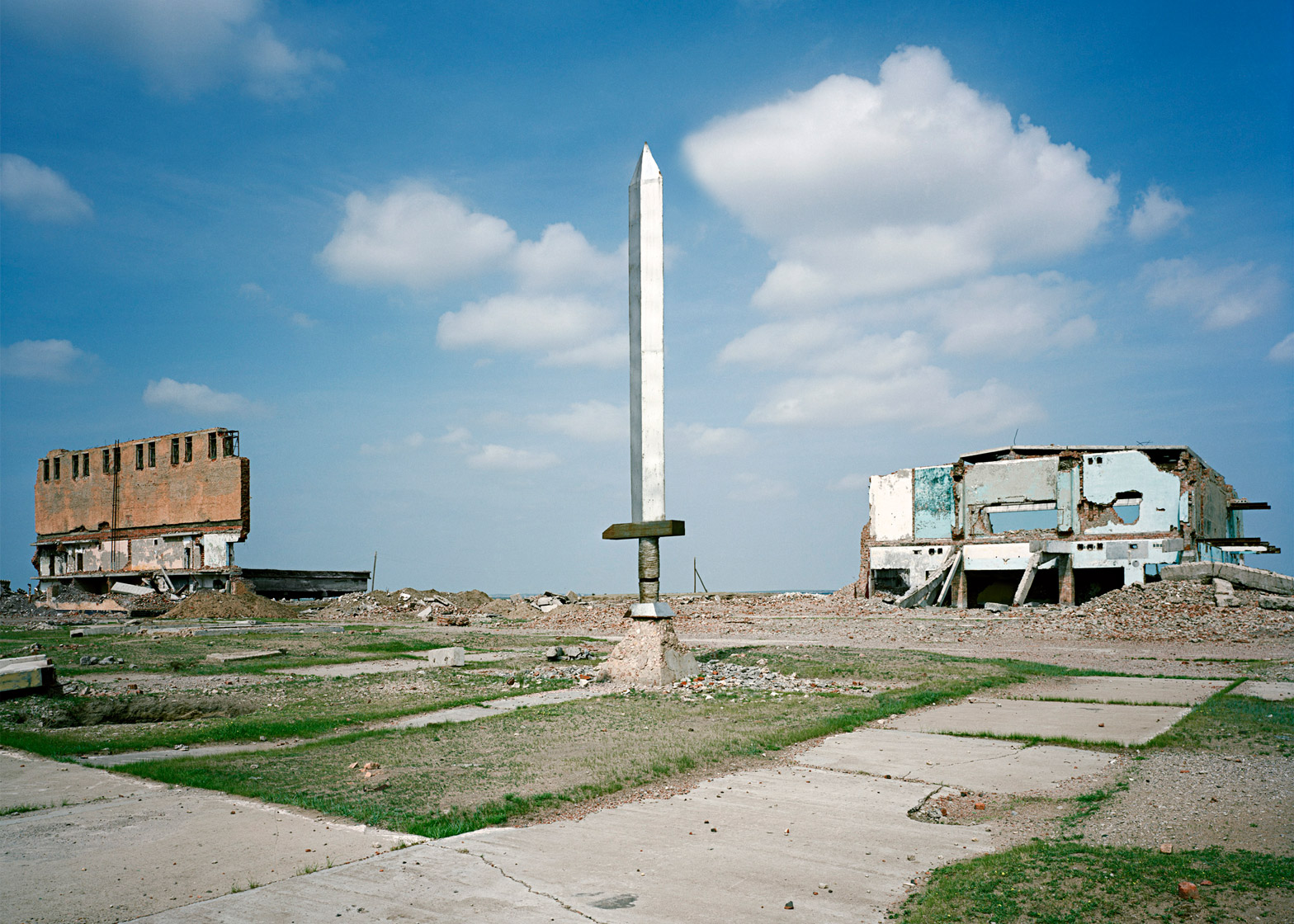The decaying architecture of the Soviet Union is the subject of an exhibition that opened this week at the Calvert 22 Foundation in London (+ slideshow).
As part of a season exploring the architectural identity crisis in post-Soviet states, Dead Space and Ruins looks at the dilapidated buildings and landscapes left in the wake of the USSR's quest to build utopian cities.
The exhibition features the work of three photographers and one filmmaker.
All four have looked specifically at the "dead space" that remains in many of these former Soviet nations.
Italian photographer Eric Lusito explored the ruins of former army bases and monuments, as part of his ongoing exploration into the physical remains of the "all-powerful Soviet Empire".
Entitled Traces of the Soviet Empire, his documentary-style series juxtaposes peeling paintwork and crumbling ceilings with propaganda artworks. He uses the term "haunting ruins" to describe his subject matter.
"From East Germany to Mongolia, from Poland to Kazakhstan, these now decaying military buildings and structures – sites hidden for so long which formed the very heart of the Soviet system, with their symbols of the all-powerful Soviet Empire once seemingly inviolable – illuminate and inform our understanding of the power and influence the military held over the people of the Soviet bloc countries, and in turn they reflect the decay of the empire itself," he said.
Russian photography artist Danila Tkachenko travelled to sites not shown on maps to create the images for his series, Restricted Areas.
His photographs capture Brutalist ruins, once symbols of technological progress, but now obsolete.
Examples include a memorial at a deserted nuclear power station in Russia and the former Communist Party headquarters in Bulgaria – although the country was an ally rather than a member of the Soviet Union.
The third set of images, by Armenian photographer Vahram Agasian, depicts buildings engulfed by water.
They form a residential development built to re-home victims of an earthquake in 1988, but which was never finished and is now deserted.
Agasian sees the buildings as a "silent reminder of economic meltdown, natural disaster and industrial catastrophe". He calls the series Ghost City.
The exhibition also includes a movie by Russian filmmaker Anton Ginzburg, looking at icons of Constructivist architecture, a style that flourished in the Soviet Union in the 1920s and 30s.
Dead Space and Ruins is on show at the Calvert 22 Foundation until 7 August 2016 as part of the Power and Architecture season.
The exhibition responds to the growing interest in the future of Soviet Architecture, as identified by the exhibitions in two pavilions at the Venice Biennale: the Czech and Slovak Pavilion, and the Baltic States Pavilion.
Other photographers that have investigated the topic include Rebecca Litchfield, who has documented monumental structures all around the Eastern Bloc, and Nicolas Grospierre, who has captured images of Modernist architecture across five continents.

